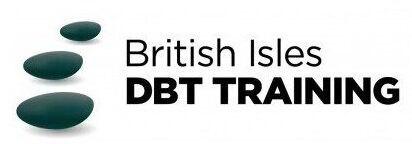
Online DBT
ONLINE DBT IN IRELAND






We offer online DBT to patients in Ireland. Want to claim through Irish health insurance? Contact our friendly team who will assist you.
Finding the proper treatment for Emotionally unstable personality disorder (EUPD), otherwise known as borderline personality disorder (BPD), is difficult.
BPD can be extremely challenging to live with. Some people with the condition are terrified of abandonment and go to extremes to avoid it, while others have extreme mood swings. Many others take risks or harm themselves and those considering suicide and, in worst cases acting upon it.
We offer online DBT to people in Ireland, across 5 DBT groups a week.
EUPD presents itself differently in individuals, which can lead to misdiagnosis.
Used to describe a group of common problems a person experiences surrounding emotions, EUPD is generally diagnosed based on having 5 of the following symptoms:
If you are experiencing any of the above symptoms, it is important to discuss your symptoms with your GP.
It is also important to recognise that there are many crossovers regarding signs and mental health disorders; therefore, it can take some time to get a diagnosis for EUPD.
Living with EUPD can present many challenges. One recurring theme that often emerges in those with EUPD is their inability to hold down romantic relationships.
However, in treatment for EUPD, we always emphasise that emotions and behavioural patterns can be better managed and even changed for the long term to bring about healthier and loving relationships.
Most of the time, I learn that those who come for EUPD treatment either have a history of abuse or have experienced an invalidating childhood.
Though, some people who develop EUPD in adulthood may have had a secure childhood.
It’s also helpful to look at the history of mental health in a family as it is far more common for those with parents who have severe conditions such as Bipolar to have EUPD.
DBT therapy is used to help you change unhealthy behaviours, including self-harm, suicidal thoughts, and substance abuse.
By learning about the triggers that lead to reactive states, this approach enables you to increase your emotional and cognitive control.
As well as identifying what coping skills to apply, you can also analyse the sequence of events, thoughts, feelings, and detrimental behaviours.
DBT is considered the most effective treatment for EUPD, and those that we treat often experience incredibly positive changes to their everyday lives.
Finding a therapy treatment that will last long-term has to be a top priority for individuals with EUPD.
DBT therapy has promising longevity and can help you focus on positive goals that will lead to a more fulfilling life.
In general, the outcomes of such therapy sessions involve:
We run a DBT programme online that focuses on all of the above. In addition, for adolescents with EUPD, we also run a separate DBT programme.
DBT sessions combine acceptance and change techniques along with homework which is reflected upon in therapy sessions.
Techniques of acceptance focus on:
The goal of change strategies is to replace destructive behaviours with beneficial ones. A therapist may suggest:
Our full DBT programme involves the DBT Skills group training element and weekly individual sessions.
In addition to this, it can also incorporate skills coaching between sessions depending on your personal therapy needs.
We highly recommending undergoing the full programme to benefit from the most effective and quickest route to making changes in your day to day life.
With the skills we teach and approach to therapy, you will fulfil your individual goals and carry them into the future.
Contact us today to learn more about your therapy options and to get started.

SPEAK TO US
Got any questions before you book? Feel free to give us a call so we can answer those all important questions for you.

BOOK YOUR ASSESSMENT
Use the online booking system below or call our team who will find a time that suits you, for an online hour long assessment via Zoom or Vsee. Same week appointments available.

DBT TREATMENT PACKAGE
Start gaining mastery over your behaviour, thoughts, and emotions with our personalised DBT treatment packages. Ready to start the process?
Want to find out more about DBT, or are you ready to book in an assessment?
We are here to help, so send us your details via the form attached, and we will get back to you with the information you need.
Want to read about DBT in the meantime, then check out our DBT brochure below.
Want to get straight in contact? Call us on our number below or send us an email and a member of our team will get straight back to you.
Phone
0203 432 5909ADDRESS
Suite 788
Unit 3A
34-35 Hatton Garden
Holborn
London
EC1N 8DX
UK